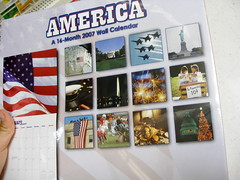"Loaves and Fishes"
This is not the age of information.
This is not
the age of information.
Forget the news,
and the radio,
and the blurred screen.
This is the time of loaves
and fishes.
People are hungry,
and one good word is bread
for a thousand.
--David Whyte
Wednesday, August 30, 2006
I work afternoons in a high school library and can surf the shelves for interesting reads... I just opened the book "Natural Capitalism", and to my pleasant surpise, discovered this brilliant and relevant poem...
Monday, August 28, 2006
The spoils, or rather spills, of War.
 I just read the San Francisco Chronicle's cover article on the massive oil spill along the coast of Lebanon, stretching from the Jiyeh power station (see map) south of Beirut on upwards--and coating in black oil--the coast to fishing towns such as Byblos. A UNESCO heritage site and 7,000 years old, Byblos is seen by some scholars as the oldest "continuously inhabited city in the world". This town, as is remarked in the article, has become a tourist destination with a quaint, old 13th-century Crusader Castle and depends on local fishing for survival. Now the town (and others like it) will have some trouble keeping its head above the (oil-soaked) water because of the spill.
I just read the San Francisco Chronicle's cover article on the massive oil spill along the coast of Lebanon, stretching from the Jiyeh power station (see map) south of Beirut on upwards--and coating in black oil--the coast to fishing towns such as Byblos. A UNESCO heritage site and 7,000 years old, Byblos is seen by some scholars as the oldest "continuously inhabited city in the world". This town, as is remarked in the article, has become a tourist destination with a quaint, old 13th-century Crusader Castle and depends on local fishing for survival. Now the town (and others like it) will have some trouble keeping its head above the (oil-soaked) water because of the spill.How did this catastrophe come about? Upon bombing the Lebanese power station in Jiyeh on July 15th, the work of Israeli forces lead to "between 10,000 and 15,000 tons of heavy fuel oil" spilling into the eastern Mediterranean Sea. This was about six weeks ago, and now "the slick has spread an estimated 90 miles north and now could threaten the coastal waters of Syria and Turkey."
Hailed as " 'the biggest environmental disaster in the history of the eastern Mediterranean' ", this is amazingly horrific and causes likely-irreparable damage to the coastal ecosystem, the towns and human life supported by it, and the economic aspirations of a region that was hoping to continue to grow its tourist industry.
The spoils, or rather spills, of war. Very sad; so delicate a world torn by aggressive, emotional hands. It's not kind to mankind to say this but it's true: it's one thing for people to destroy people, as people can create people; but it is another thing when people destroy non-human life in the course of destroying people... irresponsible and senseless destruction. I sincerely hope this serves as a lesson to mankind now and in the future.
It is so easy to destroy life through the emotions in our voices, so difficult to call it back again when we have strained our throats and can no longer speak.
Further Information (listed by date, oldest to newest):
Aljazeera News (English version): "Lebanon oil spill crisis" (July 29, 2006)
NationalGeographic.com: "Lebanon Oil Spill Makes Animals Casualties of War" (July 31, 2006)
BBC News: "Environmental 'crisis' in Lebanon" (July 31, 2006)
UN News Centre: "Oil spill caused by Israeli attack hits Syrian coastline" (August 2, 2006)
BBC News: "'Damage is done' to Lebanon coast" (August 8, 2006)
About.com: "Lebanese Oil Spill May Rival Exxon Valdez Disaster" (August 8, 2006)
Jersualem Post, Online Edition: "Israel asked to help clean up coastal oil spill near Beirut" (August 14, 2006)
Greenpeace: "Oil spills - Philippines, Indian Ocean and Lebanon" (August 18, 2006)
Watch a video with footage of the oil spill on Greenpeace.com
UN Environment Programme Press Release: "Aerial Surveillance of Lebanese Oil Spill Takes Off" (August 21, 2006)
San Francisco Chronicle: "An environmental disaster emerges on Lebanon coast" (August 28, 2006)
(source of map graphic: BBC News)
What is AMERICA? As seen by a Wal-Mart calendar
Discovered this "AMERICA" calendar in Wal-Mart during my first visit to a Wal-Mart (went down in Walla Walla, WA a week ago; I was 23 years a virgin!)... 12 images to summarize America...
Subscribe to:
Comments (Atom)


